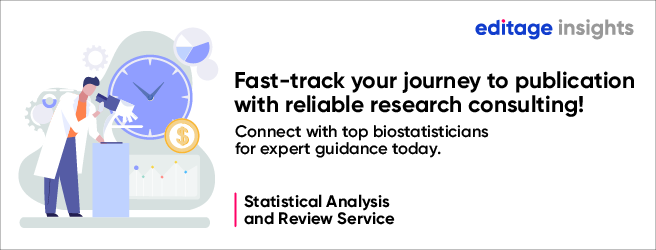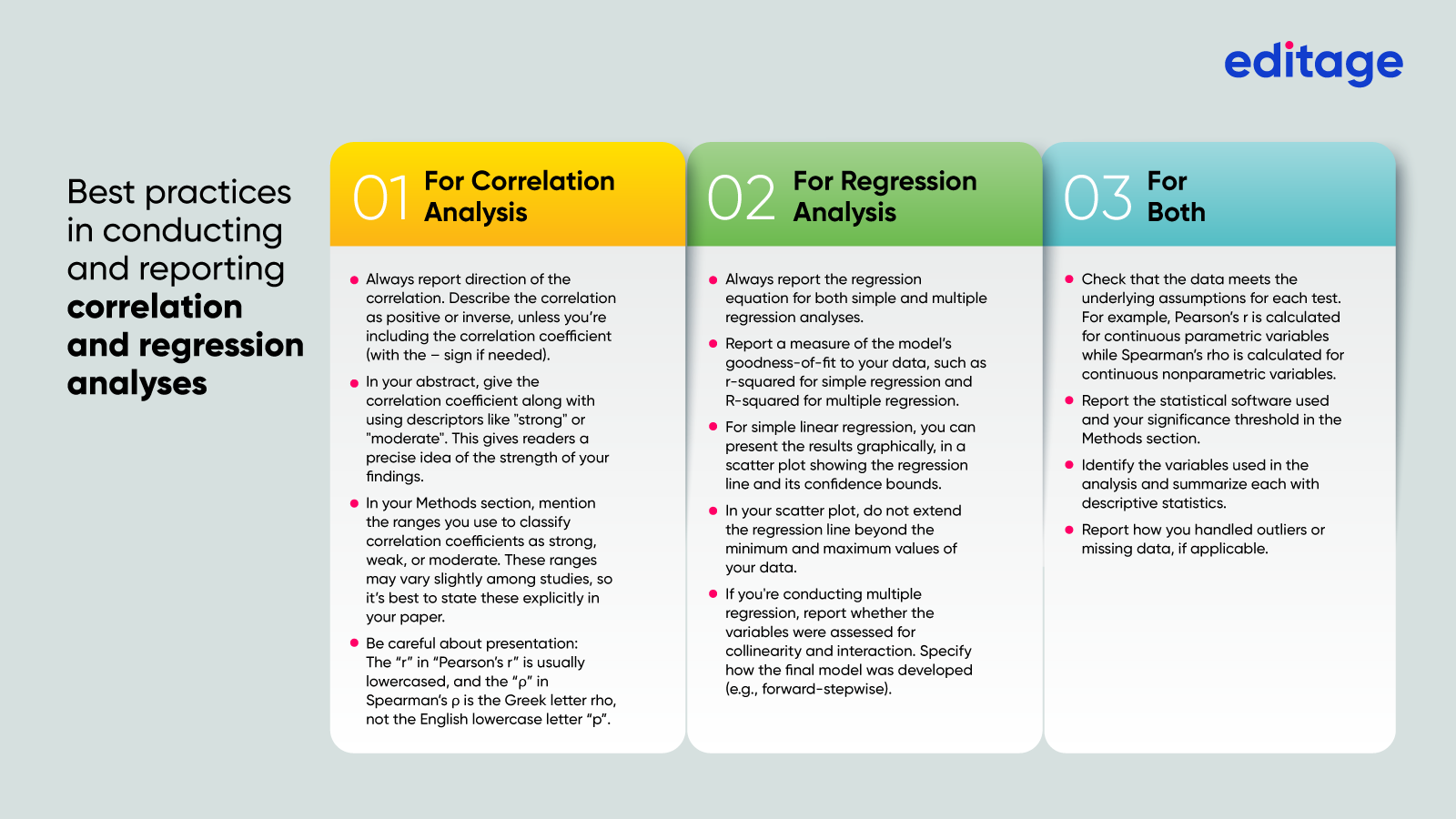Infographic: Best practices in reporting correlations, associations, and regressions in biomedical research
Correlation and regression are powerful tools that can help biomedical researchers better understand the complex relationships between variables in their data, and make more informed decisions about treatments and interventions. Through correlation or regression analyses, researchers can analyze the strength and direction of the relationships among different variables, build predictive models, identify potential confounders, and thereby gain insights into the underlying mechanisms of different diseases, treatments, clinical conditions, or health outcomes.
Hence, it’s important to conduct correlation and regression analyses rigorously and report their results appropriately. Here’s a handy infographic on best practices in reporting these analyses.
Would you like expert advice from a biostatistician when exploring relationships among your study variables? Editage’s Statistical Analysis & Review Services can help!
Best practices in reporting correlations_0.png







